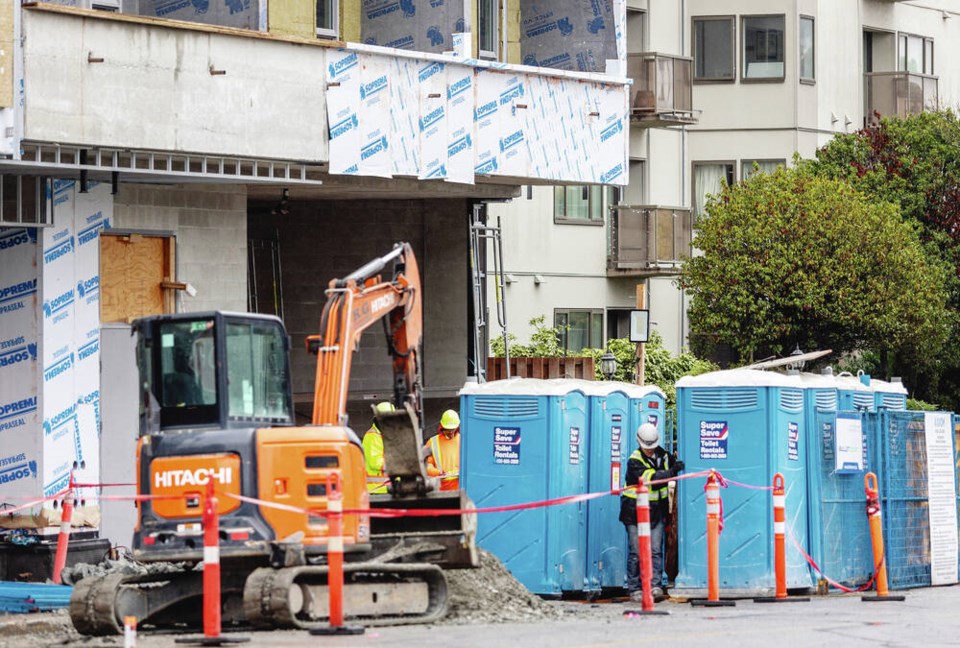Workers at major construction sites in B.C. will be able to use flush toilets once the province brings in new legislation announced this week by Premier David Eby.
Details of the new rules are still being worked out, but flush toilets will be required on sites with 25 workers or more, Eby told the B.C. Building Trades convention in Victoria.
“If we want people to work in the trades, if we want to show people that this is a great way to support your family and build your community, the basic ability to go to a bathroom that doesn’t stink, that isn’t a mess, where you can flush a toilet, is a basic requirement for a decent job site,” he said.
The province, unions, the construction sector and training schools have been working for years to encourage people to join the trades to fill job openings throughout the province.
Brynn Bourke, executive director of the Building Trades Council, which lobbied for the change through its Get Flushed campaign, said the shift to flush toilets means construction workers will be “given the dignity they deserve at work.”
“Nearly every other industry, from film to events and tourism, has found a way to bring clean, flushing toilet facilities to mobile sites. Construction workers deserve flush toilets now,” Bourke said last week.
In its campaign, the union organization cited comments from workers that they avoid using on-site porta-potties because of their often filthy condition.
Standalone flush toilet facilities with holding tanks can be towed to a site.
Chris Atchison, B.C. Construction Association president, on Tuesday called bringing in flush toilets a progressive move that the organization supports, but said the transition will take time.
“Given the abundance of what we are using now on job sites, you can imagine if this became a requirement overnight — there wouldn’t be enough, and so we need to have time for contractors to appropriately source them, bring them in.”
And while the existing stock of porta-potties is still in use, there’s a need to “elevate education and awareness and responsibility around cleaning them and making sure that they are going to stay clean if they are going to be used in the interim,” he said.
Companies bidding on new jobs will need to consider the number of workers so providing flush toilets is built into the costs and budgets, Atchison said.
>>> To comment on this article, write a letter to the editor: [email protected]



